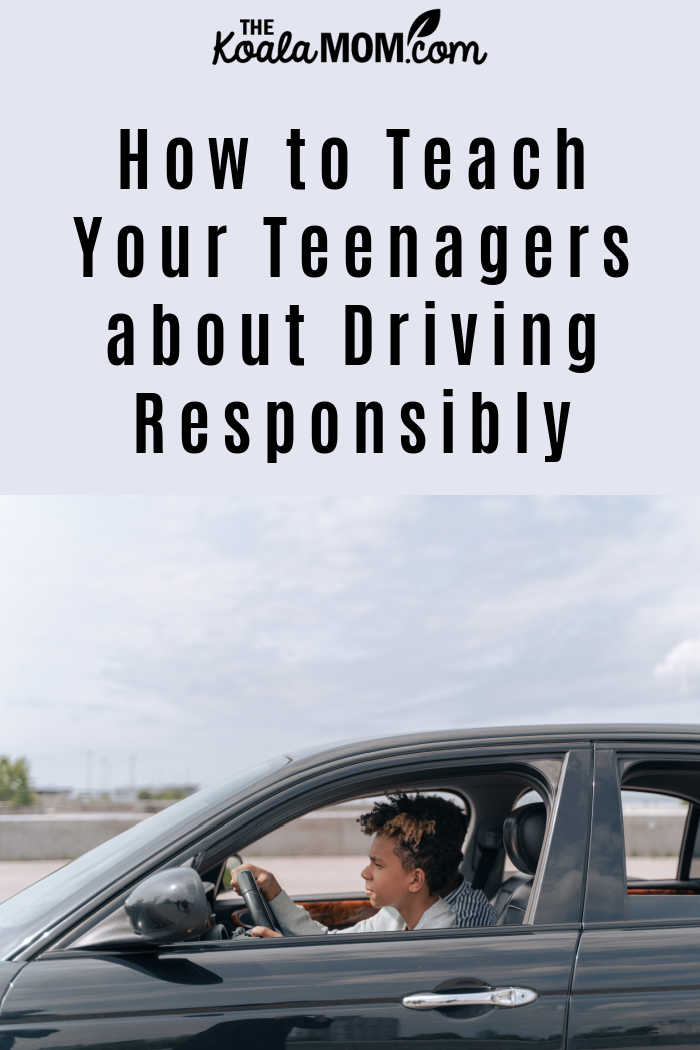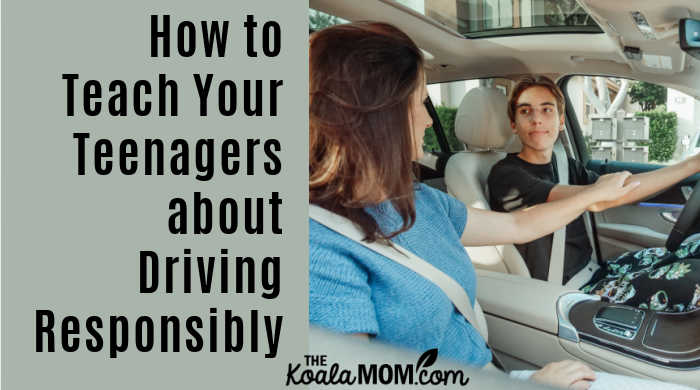It’s a fact that car accidents are the leading cause of death for teenagers in the United Kingdom. Every year, more than 3,000 teens die in car crashes, and another 400,000 are injured. Many of these accidents could be prevented if teenagers were taught how to drive responsibly.
Teaching your teenager how to drive safely and well is one of the most important things you can do as a parent. It not only keeps them safe on the road but also provides them with skills they will use throughout their life. Here are some of the ways to teach your teenager about the importance of driving responsibly.

Be a good role model
The best way to teach your teenager about driving responsibly is to be a good role model yourself. When you’re behind the wheel, follow all the traffic laws and practice safe driving habits. This will show your teenager that you take driving seriously and you expect them to do the same. My oldest girls still have a few years before they can begin to drive, but they are already watching how I drive and paying attention to what’s happening on the road.
You can also use your own driving experiences to teach your teenager about the importance of being a responsible driver. For example, if you’ve ever gotten a speeding ticket, tell them about it and explain why you shouldn’t have been speeding. Or if you’ve been in a car accident, share what happened and what could have been done to prevent it. My kids love hearing the story of my first driving lesson.
If you break the rules you’ve set for your teenager, they’re likely to do the same. So it’s important that you lead by example and always drive responsibly.
Encourage them to take driver’s education
In the United Kingdom, all teenagers must take a driver’s education before they can get their license. This is a great opportunity for you to teach your teenager about responsible driving. Driver’s education classes typically cover topics such as defensive driving, alcohol and drug impairment, and road rage.
Here in Canada, driver’s education isn’t a requirement but it’s a good idea. My dad put my twin brother through driver’s ed because it would get him a reduced rate on his insurance. Some teens are also more likely to listen to a teacher than to a parent, so if you know your teen will roll your eyes at whatever you say, then it may be a bettter idea to let a driver instructor give them driving lessons.
You can also talk to the teacher of the driver’s education class and ask them to reinforce the importance of driving responsibly. When your child takes on l-team intensives training, this will give them a better understanding of what is expected from them when they start driving. Not only that, but they will also be less likely to engage in risky behavior behind the wheel.
Make sure they practice driving in different conditions
Your teenager must get plenty of practice driving in different conditions before they get their license. This includes driving in bad weather, at night, and in heavy traffic. By exposure to different driving conditions, your teenager will learn how to handle them safely and responsibly.
You can help your teenager get this experience by taking them out for practice drives in different conditions. Provide plenty of feedback and encouragement as they drive and remember that you are helping them build skills and confidence they’ll need later.
As a teenager growing up in rural Alberta, I drove myself to and from a lot of activities in all types of weather. In my teen years, I put every one of our family vehicles in the ditch at least once, thanks to the icy winter roads; however, several times I was able to drive back out again because Mom had taught me to stay cool and careful behind the wheel. (The other time I had to walk to the nearby farm to get the farmer to tow my truck out of the ditch—another lesson.)
Teach them about the consequences of reckless driving
One of the best ways to teach your teenager about responsible driving is to educate them about the consequences of reckless driving. This includes things like getting a ticket, having their license suspended, or being in a car accident.
You can find this information online, in books, or from organizations such as Mothers Against Drunk Driving (MADD) or a truck accident law firm. Once you’ve gathered the information, sit down with your teenager and talk about it. This will help them understand the seriousness of driving recklessly and hopefully prevent them from doing it.
Set rules and consequences
You must set rules for your teenager regarding their driving. For example, you may want to set a curfew for when they need to be home at night. Or, you may want to forbid them from driving with friends in the car. Check your local provincial or state regulations, as some of these rules will be enforced by police so your teens need to know about them. Then you can add family rules after that, depending on what guidance you think your teen needs.
Whatever rules you set, make sure you enforce them. This means consequences must be given when the rules are broken. So, if your teenager comes home late, you may take away their driving privileges for a week. Or, if they’re caught driving with friends in the car, you may ground them.
Enforcing rules and consequences will show your teenager that you’re serious about responsible driving and that you expect them to adhere to the rules.

There are many ways parents can help prepare their teens for becoming responsible drivers. One way is by setting rules and consequences for breaking those rules. Parents should also lead by example and always drive responsibly themselves. Finally, teens must get plenty of practice driving in different conditions. By doing all of these things, parents can help ensure that their teenagers become safe and responsible drivers.

No Responses Yet